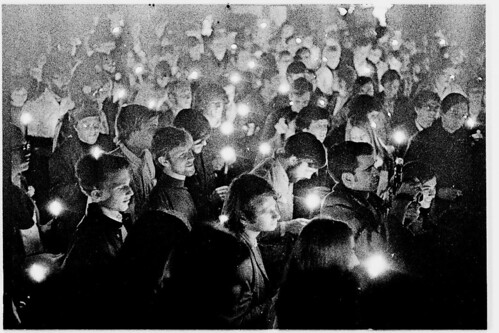Mark Liberman at Language Log pointed me today to H.L. Mencken’s essay On Being an American, which I find in its entirety [well, actually not –it’s just an excerpt from Prejudices, Third Series] at Brainwash. I’ve sawed off some especially fragrant slabs, and note, in a schadenfreudian sort of way, the lack of progress in the 80-odd years since it was writ:
It is, for example, one of my firmest and most sacred beliefs, reached after an inquiry extending over a score of years and supported by incessant prayer and meditation, that the government of the United States, in both its legislative arm and its executive arm, is ignorant, incompetent, corrupt, and disgusting –and from this judgement I except no more than twenty living lawmakers and no more than twenty executioners of their laws. It is a belief no less piously cherished that the administration of justice in the Republic is stupid, dishonest, and against all reason and equity –and from this judgement I except no more than thirty judges, including two upon the bench of the Supreme Court of the United States. It is another that the foreign policy of the United States –its habitual manner of dealing with other nations, whether friend or foe– is hypocritical, disingenuous, knavish, and dishonorable –and from this judgment I consent to no exceptions whatever, either recent or long past.
Delicious. And continuing on…
And it is my fourth (and, to avoid too depressing a bill, final) conviction that the American people, taking one with another, constitute the most timorous, sniveling, poltroonish ignominious mob of serfs and goose-steppers ever gathered under one flag in Christendom since the end of the Middle Ages, and that they grow more timorous, more sniveling, more poltroonish, more ignominious every day.
What a Glorious Sentence:
Yet here I stand, unshaken and undespairing, a loyal and devoted Americano, even a chauvinist, paying taxes without complaint, obeying all laws that are physiologically obeyable, accepting all the searching duties and responsibilities of citizenship unprotestingly, investing the sparse usufructs of my miserable toil in the obligations of the nation, avoiding all commerce with men sworn to overthrow the government, contributing my mite toward the glory of the national arts and sciences, enriching and embellishing the native language, spurning all lures (and even all invitations) to get out and stay out-here am I, a bachelor of easy means, forty-two years old, unhampered by debts or issue, able to go wherever I please and to stay as long as I please –here am I, contentedly and even smugly basking beneath the Stars and Stripes, a better citizen, I daresay, and certainly a less murmurous and exigent one, than thousands who put the Hon. Warren Gamaliel Harding beside Friedrich Barbarossa and Charlemagne, and hold the Supreme Court to be directly inspired by the Holy Spirit, and belong ardently to every Rotary Club, Ku Klux Klan, and Anti-Saloon League, and choke with emotion when the band plays “The Stars Spangled Banner,” and believe with the faith of little children that one of Our Boys, taken at random, could dispose in a fair fight of ten Englishmen, twenty Germans, thirty Frogs, forty Wops, fifty Japs, or a hundred Bolsheviki.
And then on to the concluding paragraph:
And here, more than anywhere else that I know of or have heard of, the daily panorama of human existence, of private and communal folly —the unending procession of governmental extortions and chicaneries, of commercial brigandages, and throat-slittings, of theological buffooneries, of aesthetic ribaldries, of legal swindles and harlotries, of miscellaneous rogueries, villainies, imbecilities, grotesqueries, and extravagences— is so inordinately gross and preposterous, so perfectly brought up to the highest conceivable amperage, so steadily enriched with an almost fabulous daring and originality, that only the man who was born with a petrified diaphragm can fail to laugh himself to sleep every night, and to awake every morning with all the eager, unflagging expectation of a Sunday-school superintendent touring the Paris peep-shows.
I am only slightly chastened (in these post-Boratian days of national reassessment) by Hilton Kramer’s New Criterion piece, Who reads Mencken now? (a review of Terry Teachout’s biography of Mencken):
Rereading Mencken in the first decade of the twenty-first century can be a disheartening experience, as I have lately discovered. Even the political reporting that once gave me a chuckle now strikes me as more dispiriting than amusing. The facile rhetoric of remorseless, uproarious ridicule that made Mencken a culture hero in the 1920s turns out, in retrospect, to have been exactly what Irving Babbitt said it was in 1928—“intellectual vaudeville,” full of bluster and farce aimed at what now seem easy targets, but thin in intellectual substance and woefully lacking in a sense of history.
